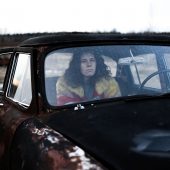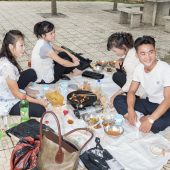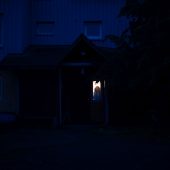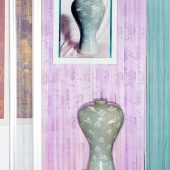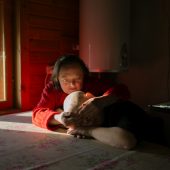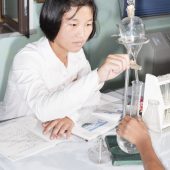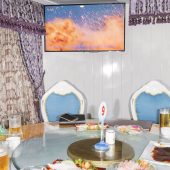Max Pinckers and Mary Gelman Awarded Top Honors at the 2018 Leica Oskar Barnack Awards
The Belgian and Russian photographers stood out among 2,500 entries from 110 different countries
September 6, 2018 — The winners of this year’s established and internationally acclaimed Leica Oskar Barnack Award (LOBA) photographic competition have been chosen. In the main category, “Leica Oskar Barnack Award”, Belgian photographer Max Pinckers won over the five judges of the competition with his series titled “Red Ink”. In the “Leica Oskar Barnack Award Newcomer” category for up-and-coming photographers aged up to 25, Mary Gelman of Russia won with her series titled “Svetlana”.
Max Pinckers’ “Red Ink” photos were taken under strict supervision. In August 2017, at the height of the propaganda conflict with the USA, he accompanied journalist Evan Osnos on a four-day assignment to North Korea for The New Yorker magazine. The photo series toys with the perceptive powers of the viewer as North Korea is still one of the most centrally directed and least open nations of the world. Although one could gather the impression that the regime has begun to allow more photographers to enter the country, unsupervised photography remains almost impossible. Aware of this, Pinckers did not envision that his photos would be able to shed light on what goes on behind the facades constructed by the regime. Instead, he used his flash as if at an advertising or propaganda shoot to emphasize the obvious staging of the situations he encountered.
Mary Gelman, winner of the newcomer award, regularly visited the village of Svetlana throughout the two-year course of her personal photography project “Svetlana”. The community is a part of the anthroposophical Camphill Movement, making it a therapeutic refuge where people with special needs or disabilities live and work autonomously in a setting untouched by prejudices and discrimination. Gelman reports that the initial reaction of the residents to her camera was over-excitement. After a while, the residents became used to her and deemed her a permanent guest, rarely noticing her camera. Gelman emphasizes that respect, openness and honesty from the individuals she captured was essential, while also maintaining calm and unhurried herself throughout the process.
“On behalf of the entire jury, I would like to congratulate Max Pinckers and Mary Gelman, the winners of this year’s Leica Oskar Barnack Awards. With their photographs, both have impressively cast a humanistic eye on elements of society in which people take center stage. All members of the jury were impressed by the diversity and exceptional quality of the around 2,500 entries from 110 different countries. The entries make it clear that the theme of the competition, “the relationship between people and their environment”, which has been the leitmotif of the LOBA since the first request for entries in 1979, remains as valid and important as ever before,” says Karin Rehn-Kaufmann, Art Director & Chief Representative Leica Galleries International.
The winners and finalists of the LOBA will be honored at a formal ceremony in Berlin on October 10. The portfolios of all twelve finalists will also be on display from October 10-31 at a major exhibition in the “Neuen Schule für Fotografie” Berlin. The 2018 LOBA Catalogue , which will be published to accompany the exhibition, will present the winners and finalists in detail featuring comprehensive portfolios and interviews.
About Max Pinckers
In his work, the Belgian photographer born in Brussels in 1988, explores the strategies of visual storytelling in documentary photography. He studied at the Royal Academy of Fine Arts in Ghent from 2008 to 2012, has since published four books and his work has been shown at numerous national and international exhibitions. He is the founder of the publishing house Lyre Press, and was already a LOBA finalist in 2016, with his entry titled “Two Kinds of Memory and Memory Itself”.
About Mary Gelman
Born in the small Russian town of Penza in 1994, Gelman graduated in sociology before turning to gender studies and photography. She studied documentary photography and photojournalism at the DocDocDoc school of modern photography in St. Petersburg and attended various national and international workshops. In the meantime, the documentary photographer has shot assignments for publications including The Washington Post, The Village and European Photography Magazine. Her multiple award-winning work has been shown at exhibitions around the world. Mary Gelman lives in St. Petersburg.
